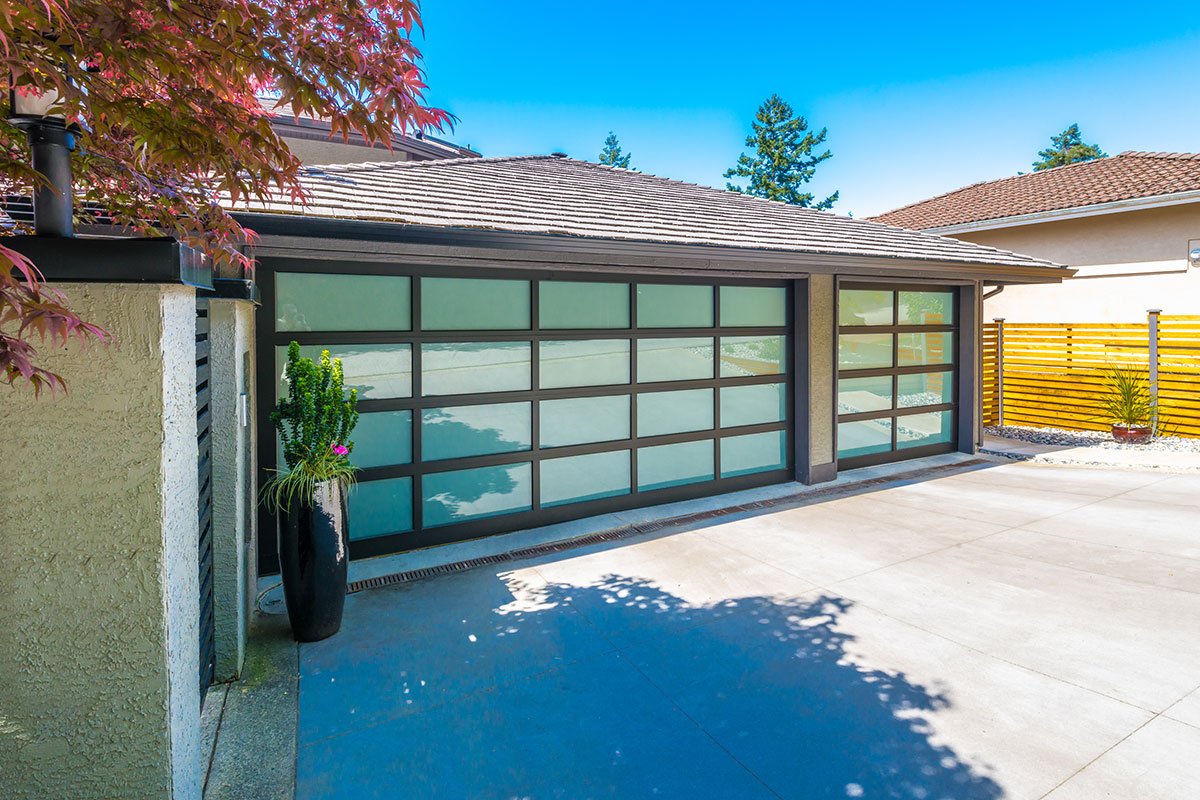Table of Contents
Why Is My Garage Door Doing the Cha-Cha? Let’s Fix That Jerk
Ever had your garage door suddenly decide it’s auditioning for a horror movie? You hit the button, and instead of gliding open like a calm elevator, it lurches, shakes, and jerks like it’s possessed. Annoying? Absolutely. Dangerous? Potentially. But before you start Googling “exorcists near me,” let’s break down why this happens—and how we can fix it. At GDR Tech Los Angeles, we’ve seen it all: from creaky tracks in Santa Monica to broken springs in North Hollywood. Let’s get your door back to its smooth, silent self.
Why Garage Doors Turn Into Drama Queens
Garage doors are supposed to move up and down gracefully. When they don’t, it’s usually one of these troublemakers:
1. Misaligned or Dirty Tracks: The Silent Saboteurs
Tracks guide your door, but if they’re bent, dirty, or out of alignment, things go sideways (literally). Rust, debris, or that rogue tennis ball your kid kicked into the track can force the rollers to jump or stick. Pro tip: A flashlight inspection can reveal a lot. If the tracks look like a rollercoaster, you’ve found your culprit.
2. Worn-Out Rollers or Hinges: The Squeaky Symphony
Rollers and hinges endure daily wear, especially here in sunny Los Angeles where garage doors work overtime. If they’re rusty, cracked, or missing chunks, the door jerks as it struggles to roll smoothly. FYI: Plastic rollers are quieter but wear faster than steel—choose wisely.
3. Broken Springs or Cables: The Heavyweight Problem
Broken springs or frayed cables are no joke. Springs counterbalance the door’s weight, so if one snaps, your opener suddenly has to lift 100+ pounds solo. Cue the jerking—and possibly a door that slams shut. Never try DIY repairs here (trust us, we’ve seen the aftermath).
4. Opener Issues: The Brain Behind the Brawn
Automatic garage door openers can develop hiccups. Misaligned sensors, worn gears, or voltage fluctuations can make the motor start-stop awkwardly. If your opener sounds like a dying robot, it might need a tune-up—or a replacement.
How to Stop the Jerk (And No, We Don’t Mean Your Neighbor)
Clean and Align the Tracks
Grab a ladder, a rag, and a level. Wipe down the tracks, check for bends, and gently tap misaligned sections back into place. If they’re beyond DIY, call us for garage door track repair. We’ll have them straighter than a Hollywood red carpet.
Lubricate Like Your Door’s Life Depends on It (Because It Does)
A noisy garage door is often a dry garage door. Hit the rollers, hinges, and tracks with a silicone-based lubricant—not WD-40 (that’s like putting band-aids on a broken arm).
Replace Worn Parts
If rollers or hinges are shot, swap them out. Steel rollers last longer but cost a bit more. For springs or cables? Call a pro. At GDR Tech Los Angeles, our garage door cable repair and spring replacements are done safely—no flying tools or ER visits.
Adjust the Opener Settings
Most openers have force and travel limits. If these are off, the door might reverse or jerk. Check the manual or let us handle automatic garage door opener installation adjustments.
“When Should I Just Call GDR Tech Los Angeles?” (Great Question!)
Look, we love DIY spirit—until it ends in tears. Here’s when to pick up the phone:
- Broken springs or cables: These are under insane tension. One wrong move and… well, let’s not test gravity today.
- Persistent jerking after lubrication/alignment: Something bigger’s wrong, like a failing opener or structural damage.
- Commercial garage door repair needs: Heavy-duty doors require heavy-duty expertise.
We serve all over LA—Happy Valley, Santa Monica, North Hollywood—and we’re pros at garage door installation, repairs, and keeping costs transparent. No surprises, just smooth doors.
The “Help Me!” Table: Common Jerk Causes & Fixes
| Symptom | Likely Culprit | DIY Fix? | Pro Fix |
|---|---|---|---|
| Door jerks mid-cycle | Misaligned tracks | Clean/align | Garage door track repair |
| Grinding noises | Dry rollers/hinges | Lubricate | Roller replacement |
| Sudden slamming | Broken spring | Nope | Spring/cable repair |
| Inconsistent movement | Opener issues | Adjust limits | Automatic garage door opener install |
Four Questions We Hear Daily (And Our Answers)
1. “Why does my garage door jerk only sometimes?”
Intermittent issues often point to sensor misalignment or opener glitches. Check for obstructions or flickering lights near the sensors.
2. “How much does garage door repair cost in Los Angeles?”
Prices vary, but minor fixes start around $150. Major repairs (like springs) run $200–$400. We’ll always quote upfront—no hidden fees.
3. “Can I install an automatic opener myself?”
IMO, unless you’re very handy, leave automatic garage door installation to pros. Wiring errors or misaligned motors can fry the system.
4. “Is a noisy garage door an emergency?”
Not usually, but don’t ignore it. Noise often precedes bigger failures. Think of it as your door’s cry for help 🙂
Final Thoughts: Let’s Keep That Door Smooth
A jerky garage door isn’t just annoying—it’s a safety hazard. While some fixes are DIY-friendly, others… well, let’s just say YouTube tutorials won’t save you from a broken spring. At GDR Tech Los Angeles, we’ve handled every garage door tantrum imaginable. Whether you’re in Santa Monica with a track issue or North Hollywood needing a full garage door installation, we’ve got your back.
So next time your door starts dancing the cha-cha, give us a shout. We’ll turn that jerk back into the smooth operator it was meant to be. 😉



